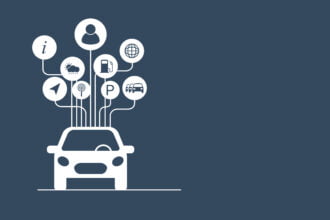Many companies have been heavily impacted by big data. One of the industries most affected by data technology has been the insurance sector.
In order to appreciate the role of big data in insurance, it is necessary to look at its historical context. The insurance industry is one of the oldest in the world, and is credited for having been the catalyst for the financial system as we know it. Insurance may sound like a boring business, but in reality, it is the most interesting part of the economy. It was the insurance industry that took the concept of money and made it truly abstract.
Think about it this way. Instead of trading something valuable for something of equal value, insurance takes money on the promise of a future payout ? but only under certain circumstances. It was this kind of thinking that opened the door for the creation of credit and modern economics.
As such, although many people think of insurance companies as dinosaurs, they are actually often ahead of the curve. This is no longer true than when it comes to data.
Data today is one of the most valuable resources. It allows companies to create profiles of people and thereby find ways to effectively market to them. But this is something that insurance companies were doing long before the age of the internet.
Data is different today because of its sheer scale. Has the way insurance evaluates data changed?
Insurance and data
To see how the insurance industry is starting to evaluate data today, we can look at the way it has traditionally worked.
When applying for insurance, you provide information about all the potential risks based on who you are, where you live, and so on. If you have pre-existing medical conditions, your health insurance premium will be edited accordingly. If you are under a certain age and therefore more likely to have car accidents, you will pay more for car insurance. Life insurance takes into account your health and how likely you are to die in the near future.
It is not only the client providing insurance companies with data. If an insured item is lost or damaged, for example, the insurance company will source its replacement value. If you are ill and need medical treatment, your insurance will determine how much they pay based on data from medical professionals who provide the treatment.
Insurance companies have been working with data for as long as the industry has been around. However, the internet (and the way we use it today) has changed where that data comes from and how it is analyzed.
Insurance in the age of Big Data
Big data has provided us with more information on the human condition than we could have ever imagined possible. But it is not psychologists and sociologists that are using this data most effectively to assess humanity.
We see big data used most blatantly with advertising that is targeted according to our online activity. However, insurance companies gather and evaluate our data far more quietly.
Today, insurance companies can tell you things about yourself that you do not know. They know about your lifestyle based on what you look at and order online. They know about your health based on data from your smart devices which track daily steps, heart rates, and more.
All of this is leading towards a more personalized insurance industry. While we are not yet there, and big insurance decisions are still made by people based on information humans can process, these processes are going to soon be managed by algorithms. The algorithms will evaluate all the data available regarding you and interpret it in the context of the big data collected worldwide.
What does this mean for consumers?
The thought of insurance companies toying with your data can feel a little frightening. After all, there are many insurance companies that take advantage of every inch given by their customers.
However, big data is more likely to benefit us. It takes away the need for invasive medicals and other practical obstacles to insurance cover. In automating the process, it keeps people from making flawed or biased decisions. You may also end up paying less for cover that you actually need, rather than getting umbrella cover based on limited data.
The insurance industry is constantly innovating. Big data is impacting it more than just about any other industry, and we can expect disruptive insurance companies to start changing the game very soon.










